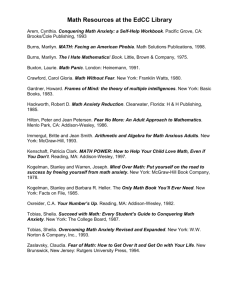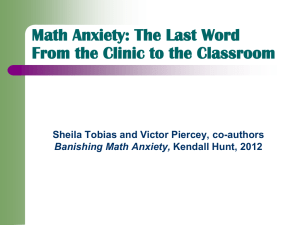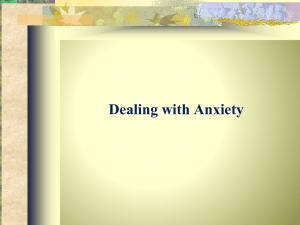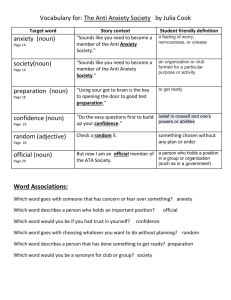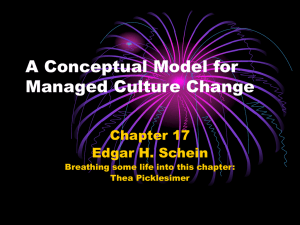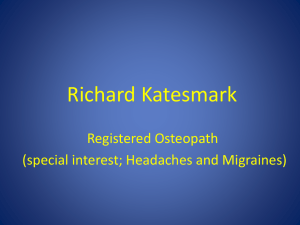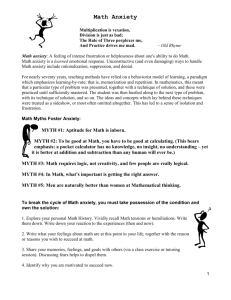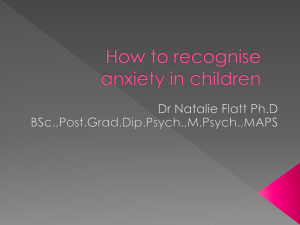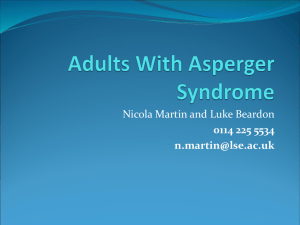Test anxiety
advertisement
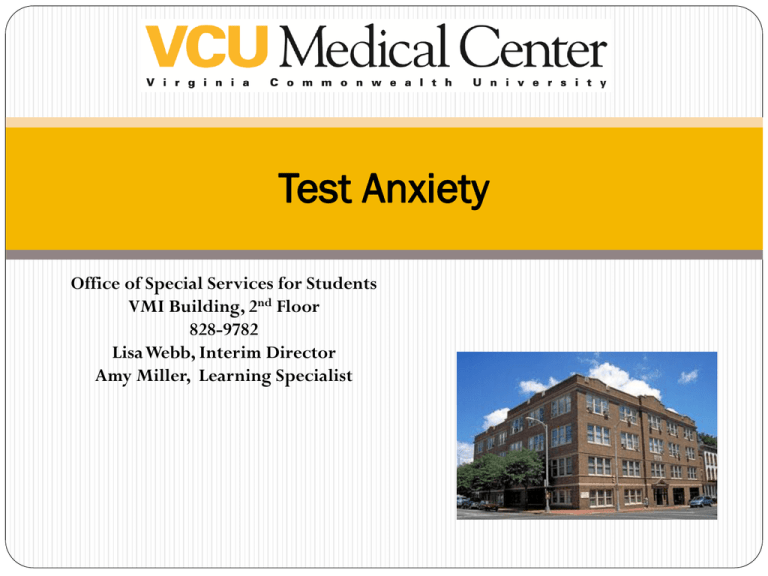
Test Anxiety Office of Special Services for Students VMI Building, 2nd Floor 828-9782 Lisa Webb, Interim Director Amy Miller, Learning Specialist What is Test Anxiety? Test anxiety is defined as a state of uneasiness and distress before and during a test that often lowers performance. Test Anxiety is NOT… caused by not studying, not studying effectively or not being prepared. Symptoms of Test Anxiety Physical symptoms can include: Sweating Shaking Rapid heart beat Dry mouth Fainting Nausea “Butterflies" in the stomach Physical illness Symptoms of Test Anxiety Cognitive and behavioral symptoms can include: Fidgeting Avoidance Substance abuse –using "downers" such as prescription medications and alcohol “Blanking" out answers to the test, even though you know the information Negative self-talk Trouble concentrating Racing thoughts Symptoms of Test Anxiety Emotional symptoms can include: Depression Low self-esteem Anger Hopelessness Helplessness Frustration Fear Tips to Reduce Test Anxiety Prepare systematically. Study and practice the material that will be on the test. Develop a consistent pre-test routine, as possible. Use study groups or involve others in your study sessions. Talk to your instructor. Make sure you understand what's going to be on the test. Let your instructor know that you feel anxious when you take tests, he or she may have suggestions and other resources to help you succeed. Learn relaxation techniques. Deep-breathing exercises Visualization Eat before the exam. Get plenty of sleep. More Tips Don't ignore a learning disability. Find out if there is an underlying condition that interferes with the ability to learn, focus or concentrate, for example, attention-deficit/hyperactivity disorder (ADHD) or dyslexia. A student diagnosed with a learning disability has a right to adjustments to help with test taking, such as extra time to complete a test or having questions read aloud. Stay hydrated. Drink plenty of water. Avoid sugary drinks: soda, they can cause your blood sugar to peak and then drop Avoid caffeinated beverages: energy drinks or coffee, they can cause or increase anxiety Get some exercise. Regular aerobic exercise, and exercising on exam day, can release tension. Ways to Beat Test Anxiety During the Test Read all directions carefully Stay focused Take deep breaths Stay positive Stay relaxed Change positions during the exam to help relax and/or regain focus Don’t cram right before the test starts - it will cause unnecessary anxiety Be prepared for the test, with pen/paper/ calculator etc. More Ways… On multiple choice questions, read all answers before making a selection If you go blank, skip the question and go back If it is an essay exam pick one question and start writing, it may help trigger your responses for other questions Don’t watch the time Don’t worry about when others finish Remember Test anxiety is VERY COMMON. You are NOT alone, if you suffer from it. Special Services for Students For More Information Please contact: Lisa Webb, lbwebb@vcu.edu or Amy Miller, ammiller4@vcu.edu 804-828-9782



